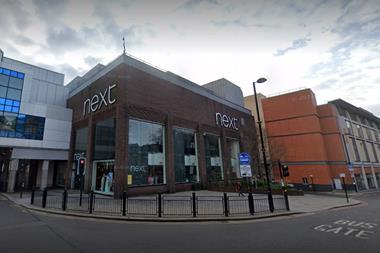Can our local and regional shopping centres thrive again? The closure of many high street names over the past few years has changed the look and feel of many shopping centres and streets, leading to a depleted offering – and plummeting footfall.

Over the past 10 years, changes in consumer behaviour have created significant challenges as shops vie with online retailers. It is a vicious circle, but as a commercial property investor, we recognise the power of community – and that means creating an experience that online shopping cannot replicate.
It is incumbent on any committed landlord to have vision. Building good relationships with tenants and businesses, alongside working with local authorities to help deliver their aspirations for their towns, is only part of the job. It is also about bold and creative thinking.
While active asset management and property management should be the mainstays for any decent commercial property business, there should be more focus on examining how operations are approached.
Reviewing every aspect of the asset management process must be key, ensuring there is a good occupier mix of national, regional, local and independent operators. Installing strong leisure and food and beverage offers is, of course, a good way to increase diversity in a retail space, but how many think of adding pop-ups or flexible retail hubs across retail?
If more asset managers took the step to add micro-retail hubs to their centres, they would undoubtedly find multi-faceted benefits. Not only does offering small retail units on a flexible basis encourage local entrepreneurs to take the step into retail, it also helps to bring in additional footfall. This is because local shoppers want to support their local retailers (and friends) and this, in turn, helps engender a level of community spirit that only adds to the positive look and feel of a shopping centre.
Adding value is another vital consideration; and while rents have to be reasonable, that is not the whole story. Reducing tenants’ service costs plays an important role for occupiers and demonstrates that landlords and asset managers are not just out to make money.
Re-tendering soft services such as cleaning and maintenance, and bringing services such as property management, marketing and PR in-house rather than using external agencies, enables efficiencies at landlord level, and demonstrates to tenants that we are looking after their financial interests, too. If landlords want to fill units, it makes sense to make them as affordable as possible. It has an obvious knock-on effect: if more shops open, it leads to more footfall, which makes the local centre more successful and vibrant.
As a developer, we have also found success in creating much-needed affordable homes in these centres, too. Converting empty upper floors of retail schemes into apartments helps create communities, which in turn instils local pride and helps regenerate an area, with residential tenants supporting their local shop traders, restaurants and bars.
In 2021, we delivered 142 apartments, all of which were sold quickly, and in 2022 there are between 150 and 300 apartments in our residential pipeline.
Notable successes include St Martin’s Walk in Dorking, Surrey, where 10,000 sq ft of office space on the first and second floors were converted into 18 one- and two-bedroom flats; and Armthorpe Shopping Centre in Doncaster, South Yorkshire, where we converted 30,000 sq ft of empty first-floor space into 28 high-quality residential units.
It is a model to which we are committed. To complement this, creating a welcoming and usable public realm that people are proud of is another key part of the community-building programme.
Margate is a good example. When we bought The Centre in December 2017, it was a run-down 1970s parade of 20 commercial units, seven of which were empty. Footfall was poor.
Thanks to the team’s bold imagination, it is now a colourful, social media-friendly centre (we have even heard of newlyweds having their photos taken there) that is fully let to ambitious independent traders. There is also UpMargate, our high-quality Microshops retail space with 12 pods offering affordable, all-inclusive, flexible monthly contracts for retailers, artists and creatives trying their first bricks-and-mortar space.
There is a long way to go to bring our high streets back to life. None of the work is quick or easy, but if landlords and asset managers are committed to imaginatively giving them the kiss of life, they can be revived and thrive. Communities take time to develop – and Rome wasn’t built in a day.
Sebastian Macdonald-Hall is a founding director of commercial property and investment company Evolve Estates






























No comments yet